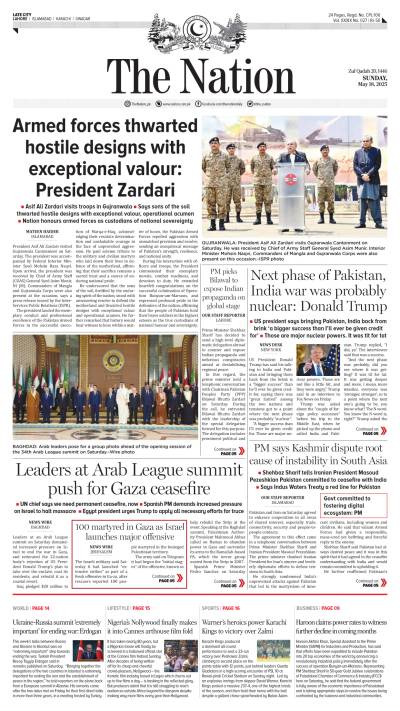Washington - The Trump administration released $5.3 billion in previously frozen foreign aid, mostly for security and counternarcotics programs, according to a list of exemptions reviewed by a wire news that included only limited humanitarian relief.
The released funds also included $397 million for a US-backed programme in Pakistan that a congressional aide said monitored Islamabad’s use of US-made F-16 fighter jets to ensure they are employed for counterterrorism operations and not against rival India.
President Donald Trump ordered a 90-day pause on foreign aid shortly after taking office on January 20, halting funding for everything from programs that fight starvation and deadly diseases to providing shelters for millions of displaced people across the globe. The freeze sparked a scramble by US officials and humanitarian organizations for exemptions to keep programs going. Secretary of State Marco Rubio, who has said all foreign assistance must align with Trump’s ‘America First’ priorities, issued waivers in late January on military aid to Israel and Egypt, the top US allies in the Middle East, and for life-saving humanitarian aid, including food. The waivers meant those funds should have been allowed to be spent.
Current and former US officials and aid organisations, however, say few humanitarian aid waivers had been approved.
The wire service obtained a list of 243 further exceptions approved as of February 13 totaling $5.3 billion. The list provides the most comprehensive accounting of exempted funds since Trump ordered the aid freeze and reflects the White House’s desire to cut aid for programs it doesn’t consider vital to US national security. The list identifies programmes that will be funded and the US government office managing them.
The vast majority of released funds — more than $4.1 billion — were for programmes administered by the US State Department’s Bureau of Political-Military affairs, which oversees arms sales and military assistance to other countries and groups.
Other exemptions were in line with Trump’s immigration crackdown and efforts to halt the flow of illicit narcotics into the US, including the deadly opioid fentanyl.
More than half of the programs that will be allowed to go forward are run by the State Department’s Bureau of International Narcotics and Law Enforcement Affairs, or INL, and are aimed at helping fight drug trafficking and illicit migration to the US, according to the list.
Those exemptions were worth $293 million and included funds for databases to track migrants, identify possible terrorists and share biometric information. A State Department spokesperson did not respond to a request for comment.
Trump has long railed against foreign aid, which has averaged less than 2 percent of total federal spending for the past 20 years, according to the nonpartisan Committee for a Responsible Federal Budget. Trump has described the US “foreign aid industry” as “in many cases antithetical to American values.”
Billionaire Elon Musk’s Department of Government Efficiency has led an effort to gut the United States Agency for International Development, the main delivery mechanism for American foreign assistance and a critical tool of US “soft power” for winning influence abroad.
In contrast to security-related programs, USAID programmes received less than $100 million in exemptions, according to the list. That compares to roughly $40 billion in USAID programs administered annually before the freeze.






